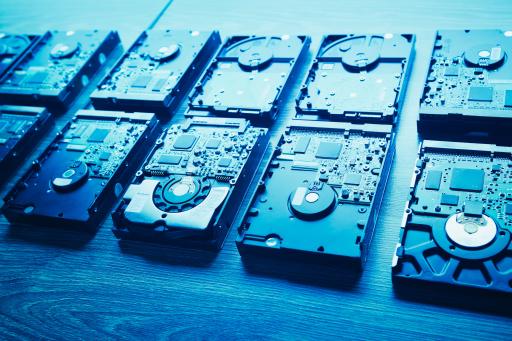Making an Informed Choice: Evaluating Seagate Hard Drives
Making an Informed Choice: Evaluating Seagate Hard Drives
Seagate hard drives are some of the cheapest and most widely available today. Should you buy them?
By Northwest Data Recovery Team

When you’re in the market for a new hard drive, the number of options can seem dizzying. Seagate, Western Digital, and Toshiba are the most common options. Read on to learn more about Seagate’s relative strengths and weaknesses.
First, Seagate has had some publicity issues. The Department of Commerce fined Seagate $300 million for selling hard drives to Huawei, the Chinese tech company, in April. This isn’t the first time the company has come under controversy. In 2016, customers filed a class action lawsuit alleging higher failure rates for Seagate’s 3TB hard drives. Another issue came in 2015 when security researchers found that Seagate wireless network-attached storage (NAS) drives allowed unauthorized access to files on the device.
Market Share, Reliability, and Affordability
When it comes to market share, Seagate stands as the leader in the hard disk industry (although Western Digital is catching up). The company’s large customer base shows its popularity. Statistics from Backblaze showed that Seagate drives may fail more often, but it’s worth noting that they’re based on data from data centers. This may not reflect the performance of Seagate hard drives for home or small business use. Because of its large market share, Seagate’s drives are often more affordable than similar offerings from other brands.
Reliability and Transparency
Seagate, like any hard drive manufacturer, has experienced instances of reported failures and reliability concerns over the years. However, it’s important to note that reliability can vary across different models and product lines.
For example, if you are looking to buy a hard drive for your NAS server, then you should consider what technology your drive uses to store information. Many cheaper hard drives use a technology called Shingled Magnetic Recording (SMR). This technology packs more data in less space than conventional magnetic recording (CMR, also known as PMR). While SMR technology is cheaper, it comes at a performance cost, especially for NAS servers. One good thing about Seagate is that they share clear information about which technologies they use in each product line. You can refer to Seagate’s website for information on which technologies Seagate uses in their internal drives.
A note from Northwest Data Recovery engineers on reliability:
We see a lot of Seagate hard drives come in with problems — perhaps a testament to their popularity. However, most less expensive Seagate drives use SMR technology, and this technology is more difficult to recover data from!
This means that if you rely on cheaper drives and don’t have a backup, you will have to spend more time and money on data recovery services.
In conclusion, Seagate drives are cheap and highly available, but it’s important to remember that hard drives, like any equipment, don’t last forever. Back up your data in more than one place. That way, an eventual hard drive failure won’t catch you off guard. When it comes to your valuable information, preparedness is key.
